The Centre for Environmental Geochemistry (CEG) focuses on the use of geochemistry in research, training and teaching. We investigate:
- environmental and climate change
- biogeochemical cycling including pollution typing/provenance
- science-based archaeology
- the use of geochemical tools for research into the subsurface
The centre has established collaborations with both the University of Nottingham and Heriot-Watt University.
Find out more about our research facilities
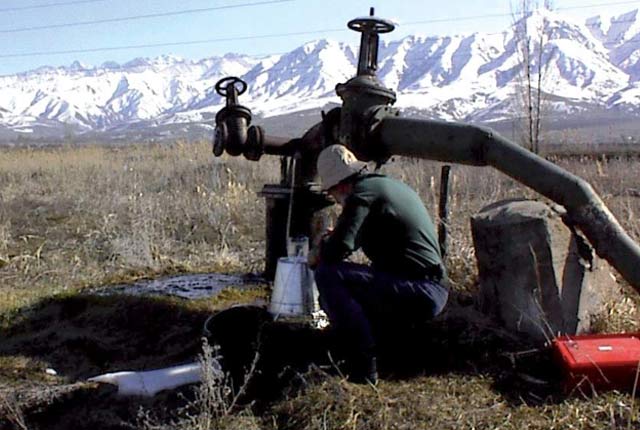
Dissolved Gases and Tracers Facility
Utilising a wide range of environmental agents, equipment and capabilities for groundwater dating and tracing.
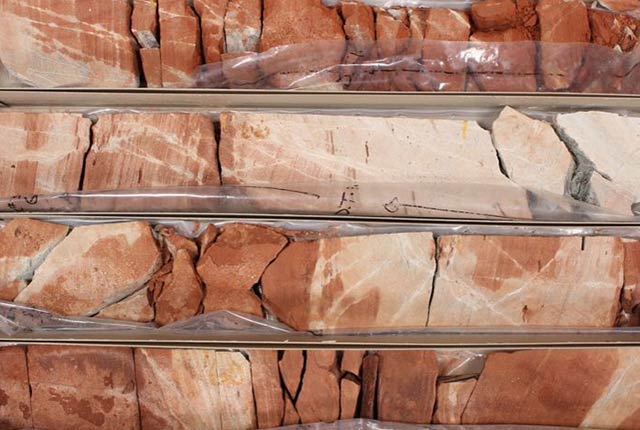
Aquifer Properties Facility
Undertaking specialised core characterisation on drillcore and rock chippings from borehole samples for a wide range of hydrogeological purposes.
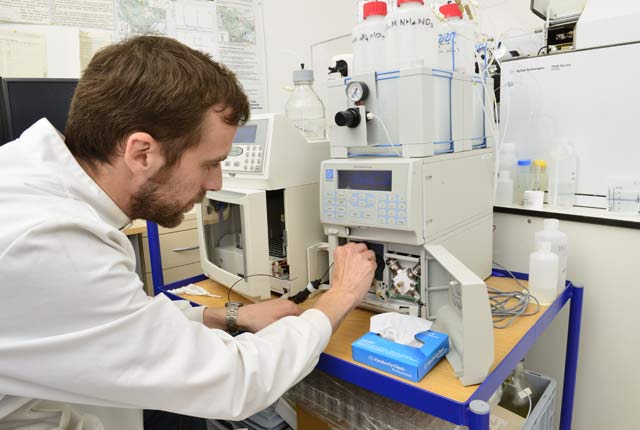
Inorganic Geochemistry Facility
Providing high-quality analytical expertise and specialist services for the production and geochemical interpretation of inorganic data.
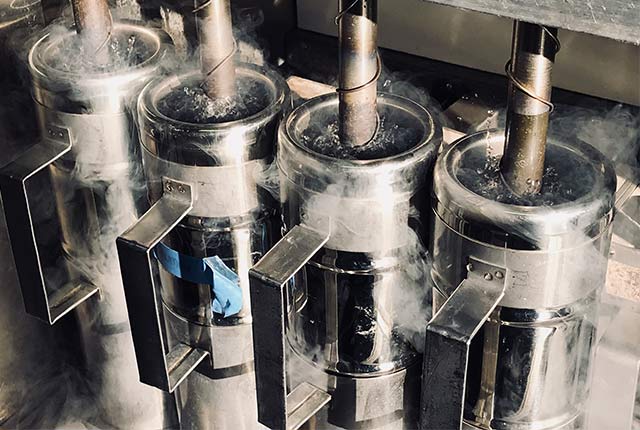
Stable Isotope Facility
Generating stable isotope data, specialising in climate, environmental and archaeological studies.
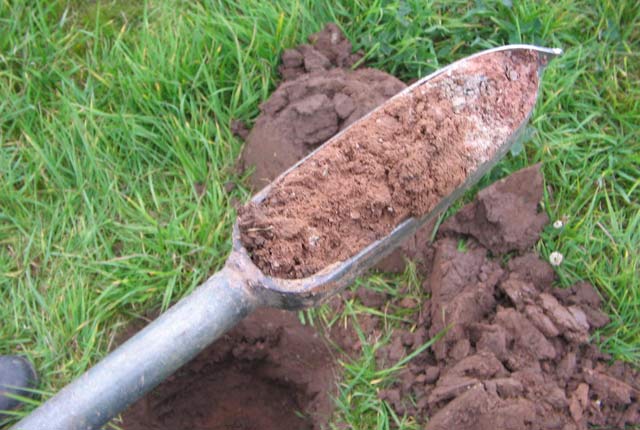
Soil Physics Facility
Providing a range of soil physical measurement services as well as complementary analyses to describe the degree to which soil organic matter is decomposed.
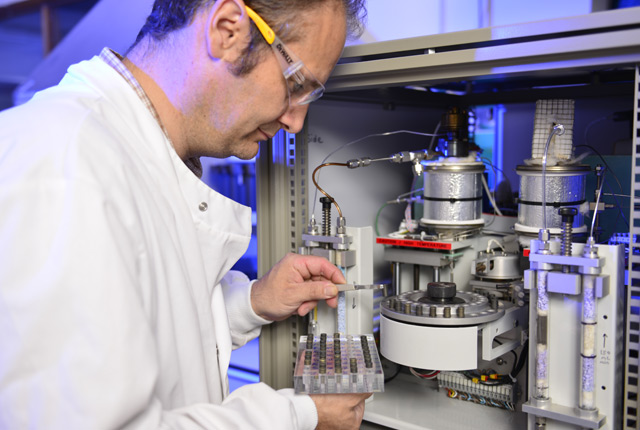
Organic Geochemistry Facility
Specialising in organic geochemical measurements at the bulk and molecular level in complex matrices, like rock, sediment, soil and water.
Need more information?
Related news
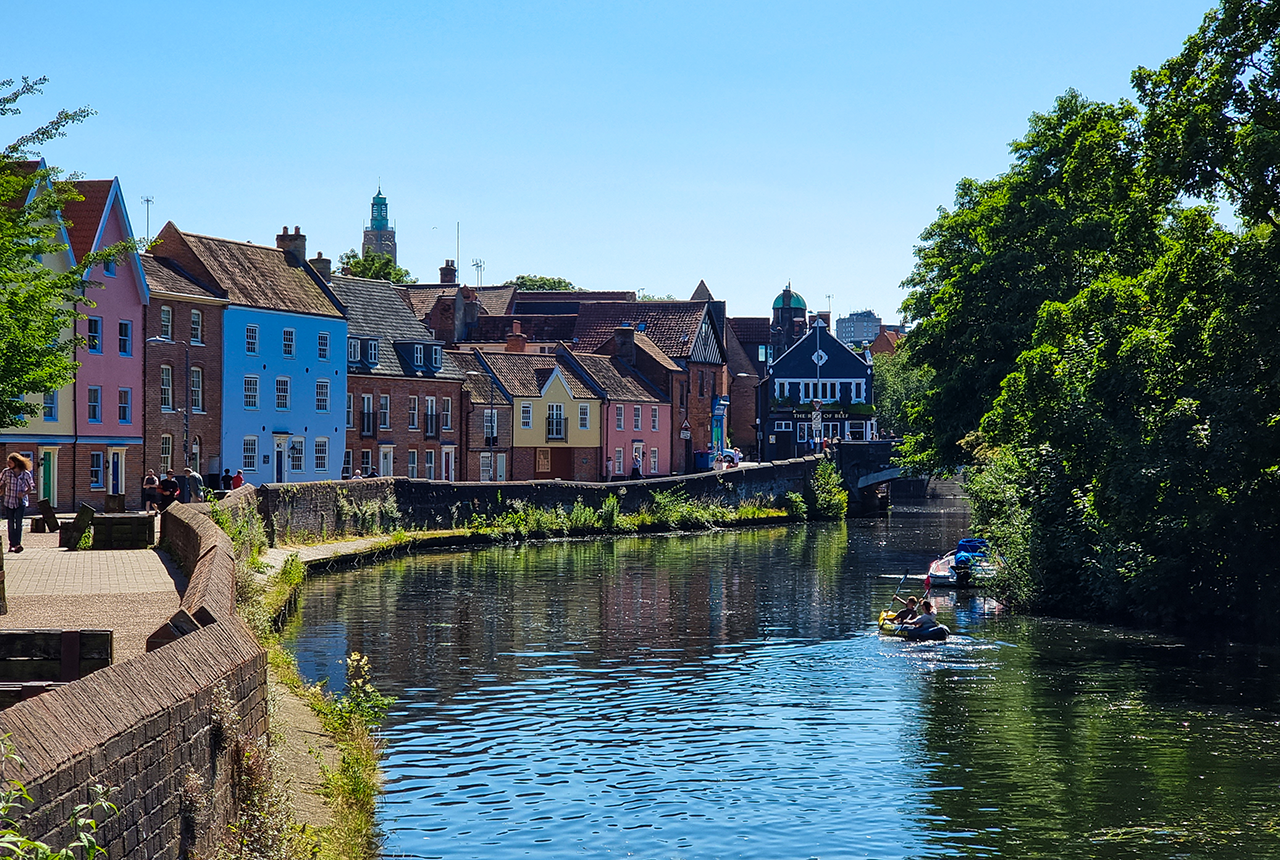
Modern pesticides found in UK rivers could pose risk to aquatic life
17/06/2025
New research shows that modern pesticides used in agriculture and veterinary medicines have been found for the first time in English rivers.
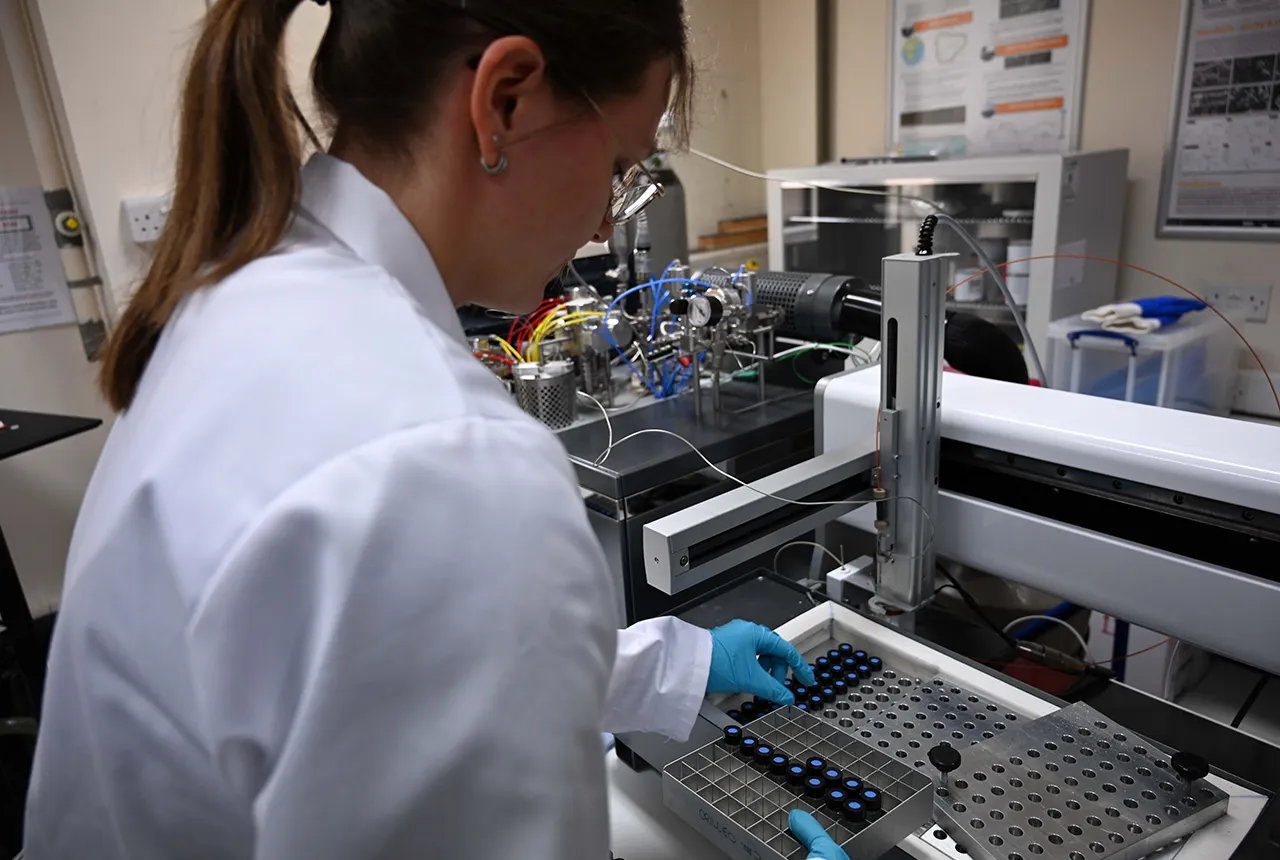
Carbon and oxygen isotope analysis of carbonates and the development of new reference materials
18/12/2024
Dr Charlotte Hipkiss and Kotryna Savickaite explore the importance of standard analysis when testing carbon and oxygen samples.
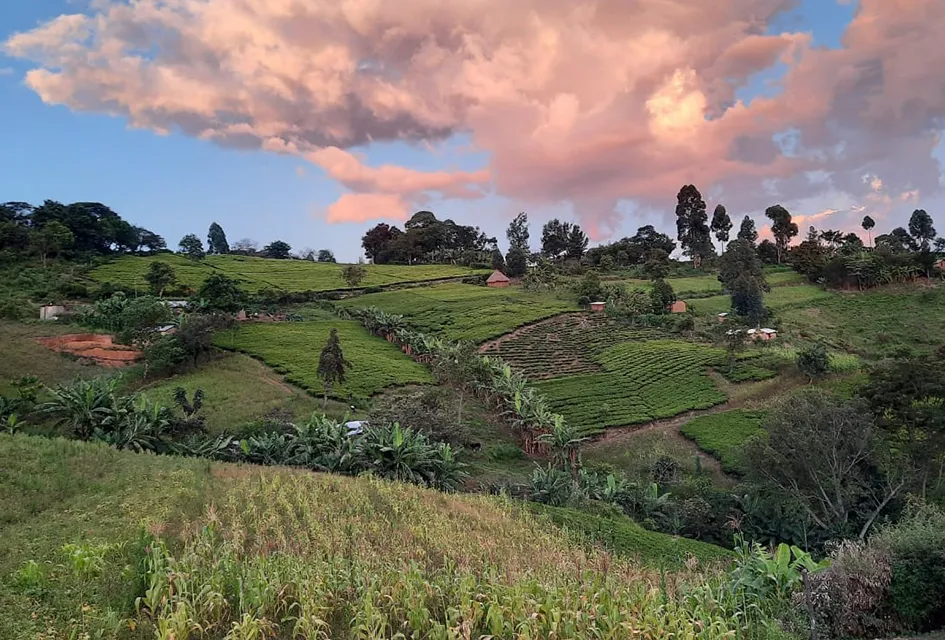
Dynamics of land-to-lake transfers in the Lake Victoria Basin
09/12/2024
In June 2024, a UK/Kenya research team shared research findings from a collaborative, four-year field and experimental programme within Kenya.
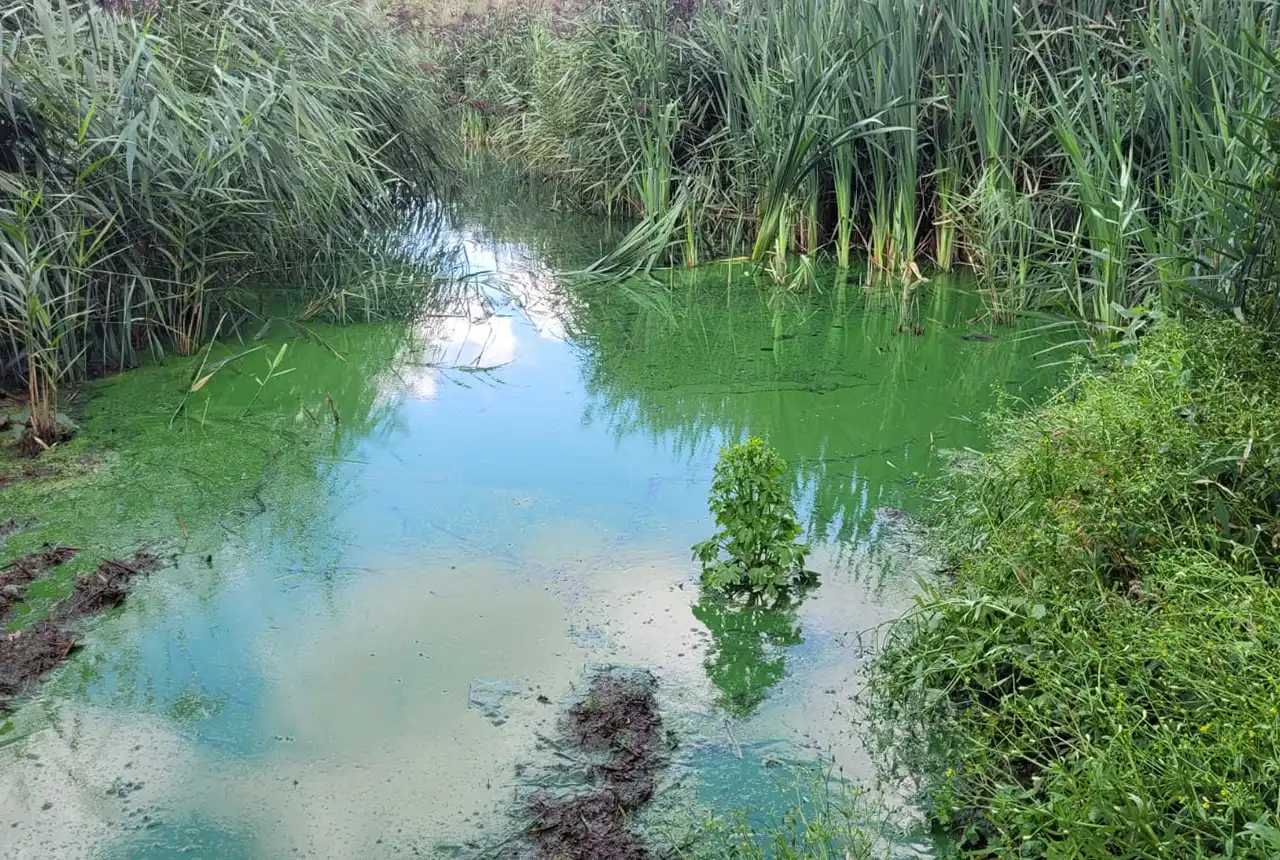
Studying oxygen isotopes in sediments from Rutland Water Nature Reserve
20/11/2024
Chris Bengt visited Rutland Water as part of a project to determine human impact and environmental change in lake sediments.
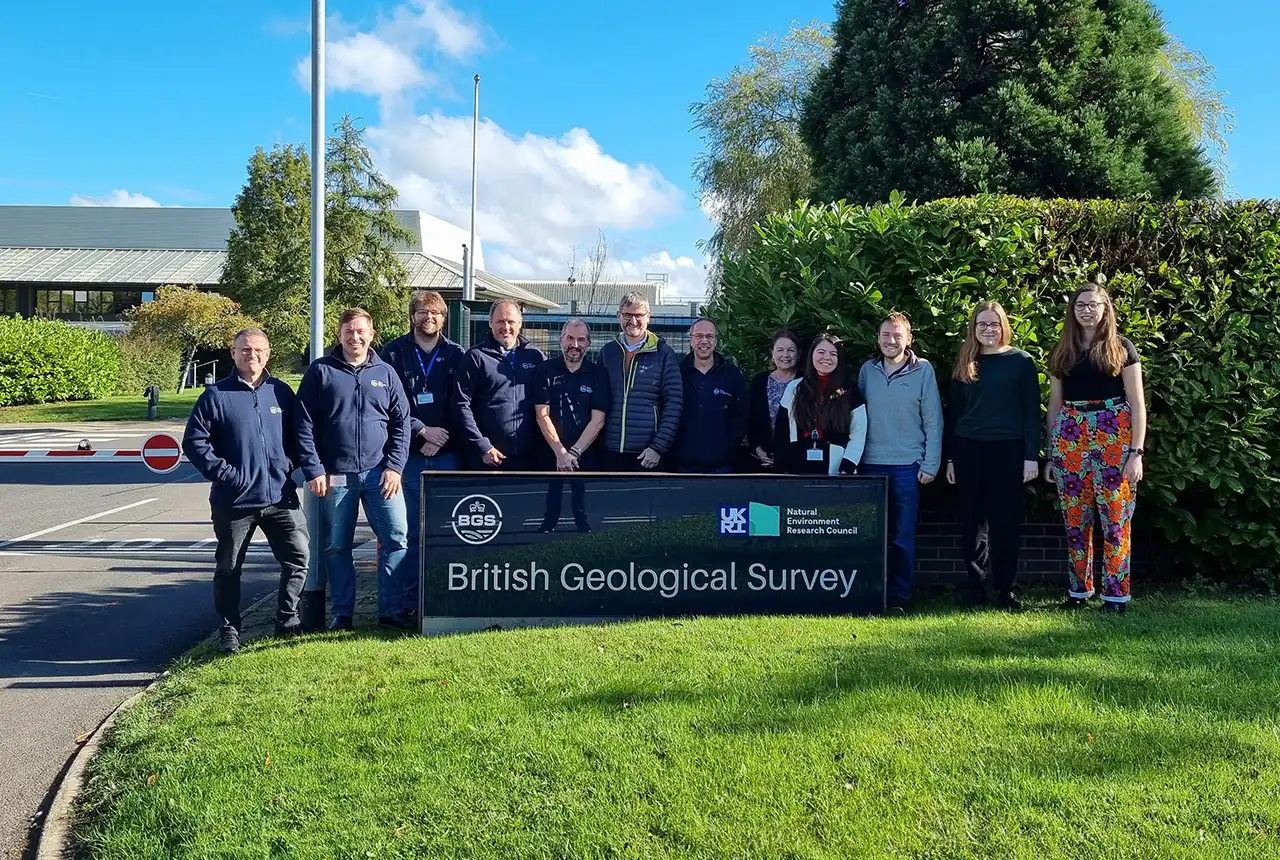
Celebrating 25 years of technical excellence at the BGS Inorganic Geochemistry Facility
08/11/2024
The ISO/IEC 17025 accreditation is evidence of technical excellence and reliability, and a mark of quality assurance.
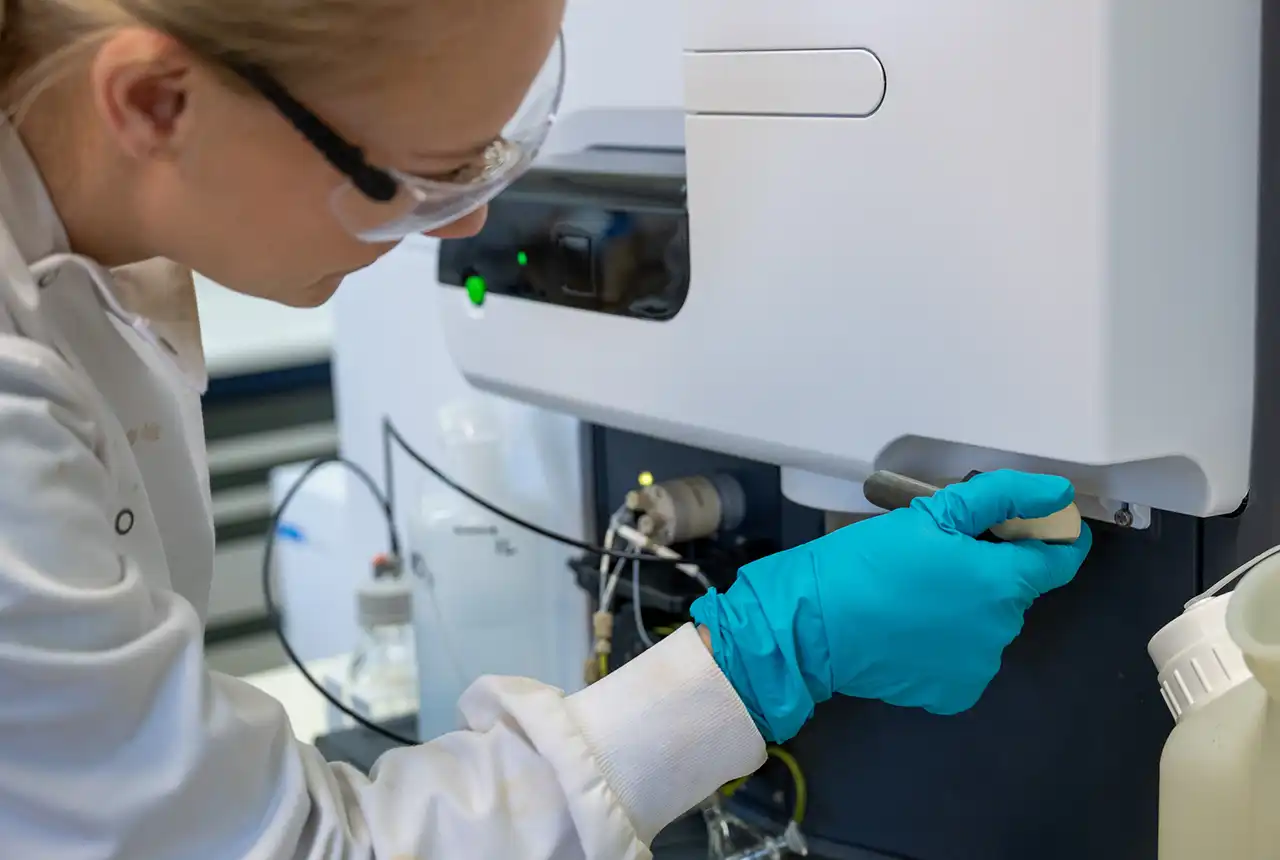
BGS chemists involved in new project developing early detection test for bladder cancer
15/10/2024
BGS is combining its expertise with researchers from Queen’s University Belfast, the University of Dhaka and the International Agency for Research on Cancer to further develop a urine-based early detection test.
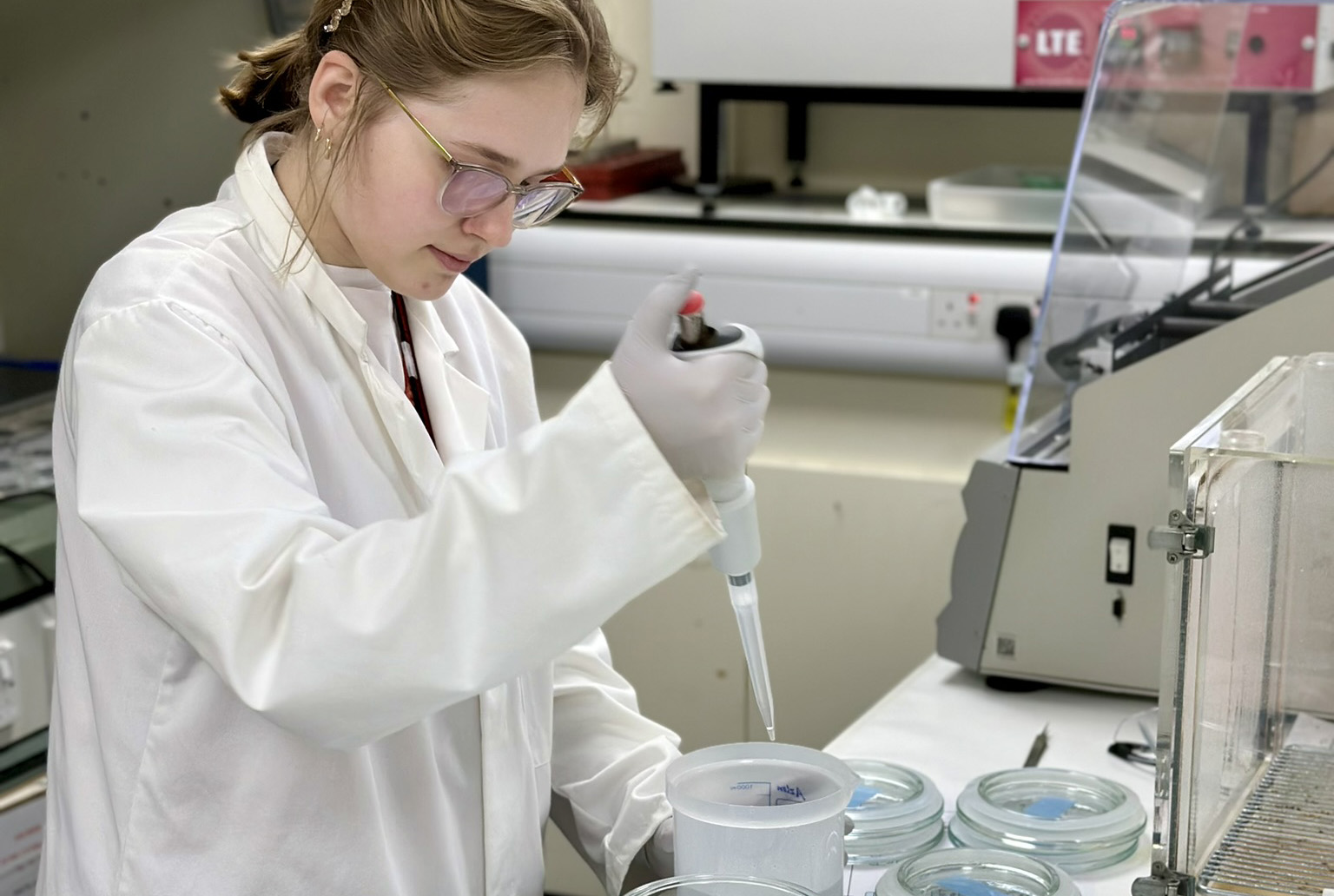
Exploring the role of stable isotope geochemistry in nuclear forensics
09/10/2024
Paulina Baranowska introduces her PhD research investigating the use of oxygen isotopes as a nuclear forensic signature.
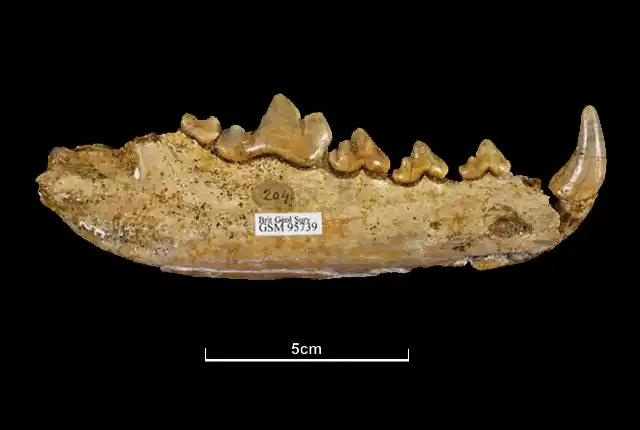
Hungry like a wolf: new insights from old bones housed in the BGS museum collections
18/01/2024
BGS scientists are studying the diets of ancient British wolves and how they adapted to changing environments.
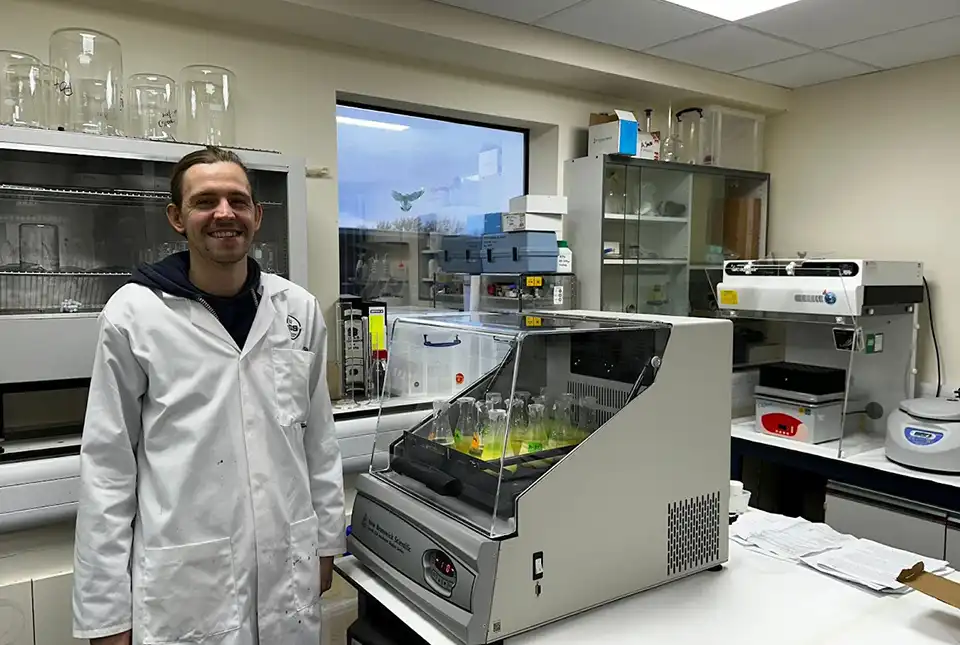
Understanding nutrients in tropical rainforests
11/01/2024
Christopher Bengt talks about carrying out research for his PhD amongst the rainforests and volcanoes of the Philippines.
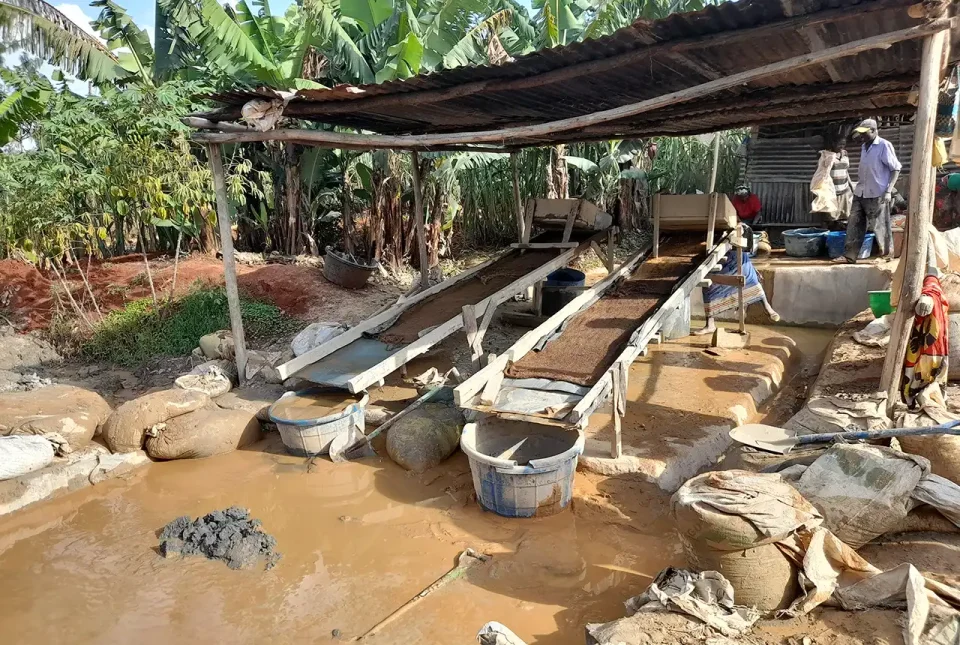
Linking geochemistry and health in artisanal and small-scale gold mining in the Kakamega-Vihiga gold belt, Kenya
09/01/2024
PhD candidate Maureene Auma Ondayo is investigating major and trace element exposure in the environment in Kenya, aiming to reduce exposure of humans to toxic chemicals.
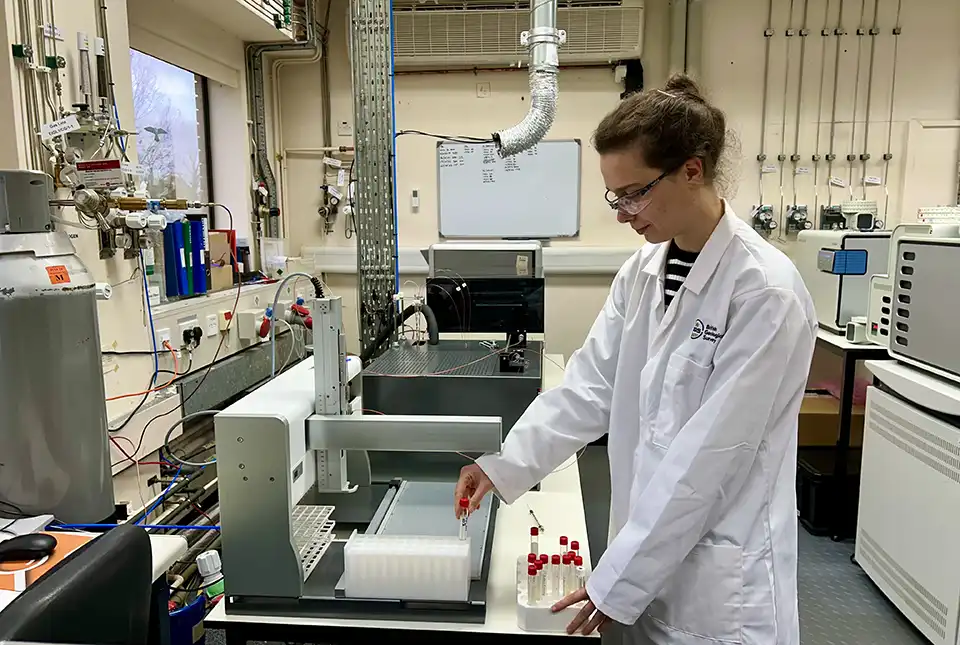
My role as a stable isotope research assistant
19/12/2023
Charlotte Hipkiss has recently taken up a new position in the National Environmental Isotope Facility at BGS and gives us a little insight into her new position.
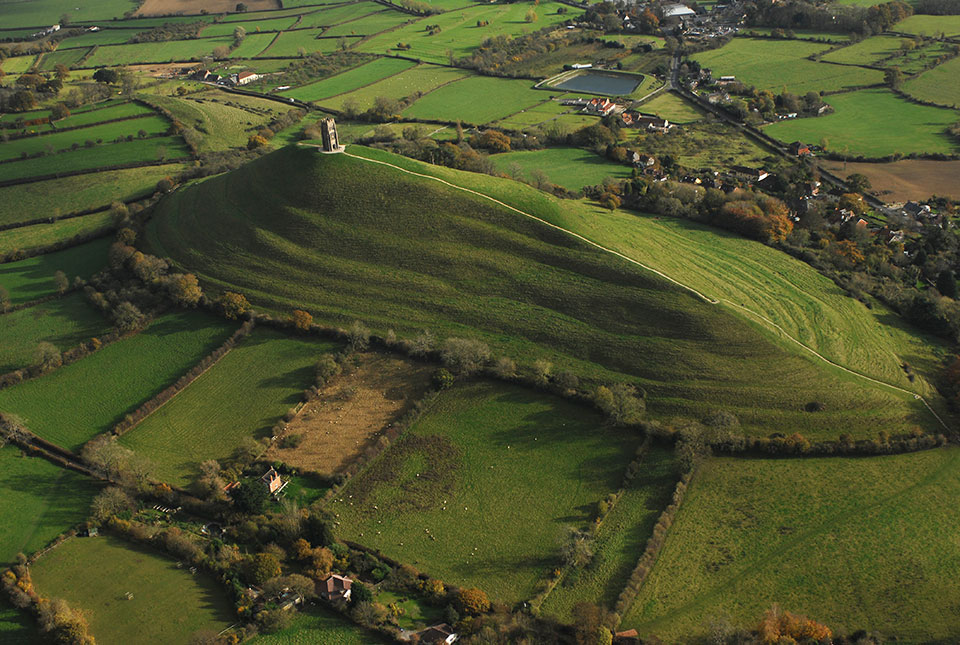
New method developed to identify wetland inhabitants
01/11/2023
BGS-led research has helped develop a method to identify ancient human and animal wetland inhabitants.
You may also be interested in
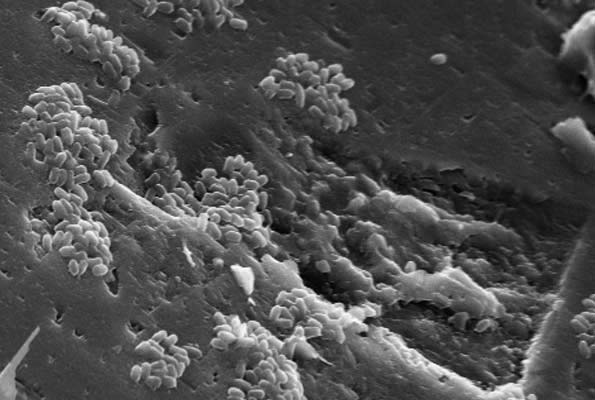
Fluid and Rock Processes Laboratory Cluster
Identifying, measuring and quantifying complex geological and environmental processes essential in the efficient utilisation of natural resources and underground spaces.
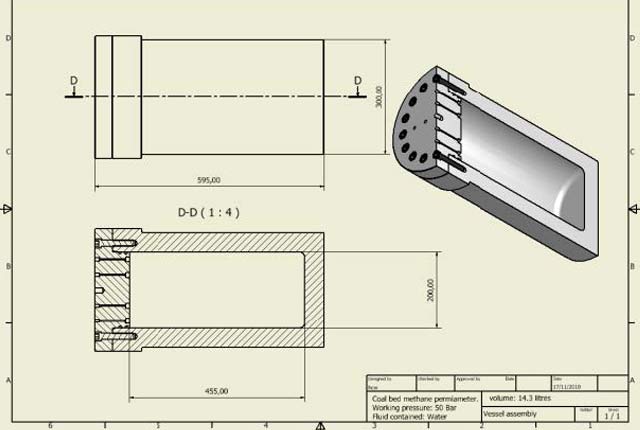
Engineering and Geotechnical Capability
Leading the development and application of field and laboratory infrastructure and long-term management of geophysical and geotechnical property data.


